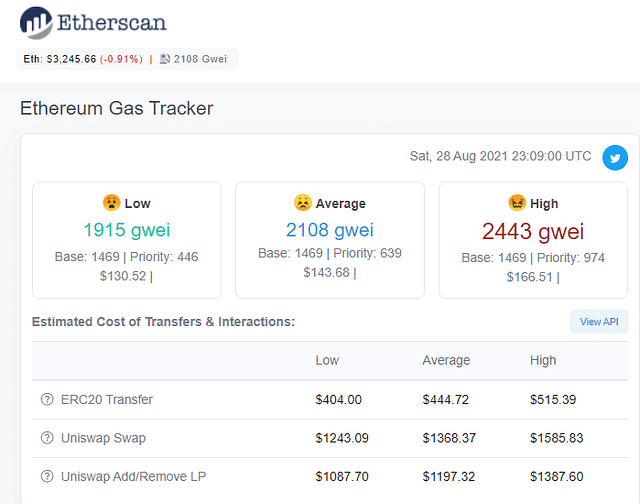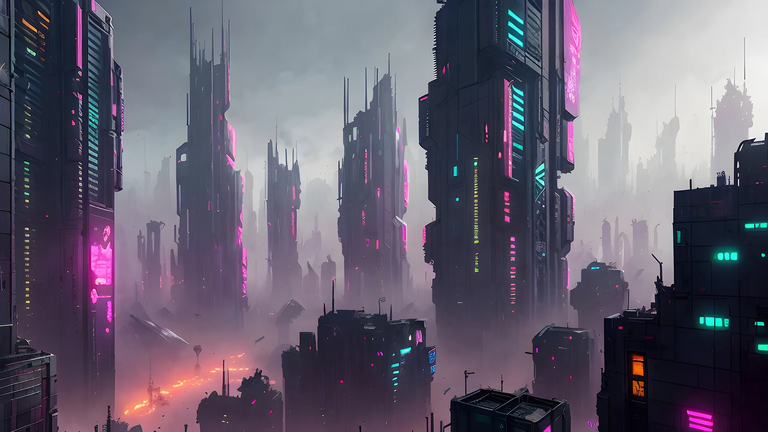The Metaverse: A Colossal Virtual World With Infinite Opportunities
A Multiverse Of Metaverses — The Issues With Web3 Centralization

Two years after the unreasonable Metaverse hype finally calmed down, governments are already funding the infrastructure.
We can envision the Metaverse as a clustered network of interoperable 3D platforms with VR/AR capabilities, real-time application, and self-controlled virtual ownership.
A Multiverse of competing Metaverses will emerge, generating competition in a similar approach to social media today (it won’t be just about social media, though).
Crypto-influencers propose Web3 as a serious development, but when we need technologies that scale to meet global demand, we should be wondering about several emerging issues with what the mainstream proposes.
Since governments initiated the development of Metaverse services, it seems that doubters missed the next big thing (again).
Still, we will soon have to decide which technologies are ready for use in global AR/VR universes interoperable with each other that, in a few years, will contain innovation worth trillions of dollars.

A Multiverse Of Metaverses
Back in 2021, I was (probably) the first one to propose the plural term Metaverses instead of a single Metaverse.
“There will be plenty of metaverses, not just one. Apple, Google, Nintendo, Ubisoft, and almost every gaming corporation will try to create their version of the Metaverse”
We define the beginning stage and the first steps of the production of a massive new world, a second life, and perhaps, by 2045, the end product and the infinite opportunities it contains:

The Issues of Web3

We could achieve interoperability in the financial aspect of a Metaverse with Web3. However, Web3 contains several issues, so perhaps better protocols should apply.
Web3 is tightly connected (for the time being) with Metamask wallet and Ethereum, with both carrying several issues, making Web3 unusable as a gateway into the Metaverse (any Metaverse).
- Centralization and Censorship
The most used Ethereum wallet, Metamask, relies heavily on centralized infrastructure (Infura), so complete decentralization is already a myth.
Meanwhile, Metamask can block the IPs of an entire country, as we’ve witnessed in Venezuela. A VPN should assist users, but this is only a temporary patch to bypass state censorship.
Ethereum clones and networks resembling Ethereum’s functionality, like Polygon, Solana, Avalanche, and BSC, are centralized solutions carrying several reliability issues.
If it is not decentralized, we might use the Amazon cloud of Microsoft Azure. There is no actual reason to use trusted and centralized blockchains with validators under the control of small teams of developers and not already established corporations. If trust is involved, why should we select Solana, Cardano, or other centralized entities and not Microsoft or Amazon?
- Scalability
Ethereum is not Metaverse-ready material. The high fees and network congestion make Ethereum unusable for mass use.
We need networks that don’t brake when used by millions and perhaps even billions simultaneously. Ethereum broke when it added a couple of thousand more users and entities.
The alternatives to Ethereum, as mentioned above, offer a centralized patch to Ethereum’s scaling issues.
- Fast And Cheap Transactions
A better option for robust smart contracts will soon launch:
Bitcoin Cash with the Cashtokens upgrade (May 2023) improves the capabilities of the smart contract on one of the most robust blockchain and decentralized networks.
Maybe the solution is with one of the blockchains that scale without sacrificing decentralization and their permissionless nature.
Hive is also an interesting blockchain that has proven its potential, even if it is still underutilized.
Many ideas in the blockchain space that offer digital solutions did not reach the mainstream yet.
The future is not set in stone. Any technology adopted by the Metaverse will have to meet several strict criteria.
Any blockchain incorporated within a Metaverse has to be fast, secure, and reliable. With fees as high as Ethereum reaches, it will not be possible for any developer to consider these networks.
What the Metaverse will demand:
- Reliability: Speed and Low Fees, Fast transactions
- Networks that massively scale
- Secure and Decentralized
We will be buying and selling virtual land, space, and items. E-commerce will also intensify as we realize our time is more valuable than anything else.
We will own indisputable rights with no third party intermediating or controlling these rights. Our NFTs will contain rights to our virtual land.
There’s no way a virtual world will succeed with Ethereum for NFTs.
However, we wouldn’t want NFTs on a centralized or semi-centralized network either.
We wouldn’t want our digital property confiscated. Yet, several centralized networks exist with backdoors to limit financial freedom.
Permissionless blockchain networks present our only hope for the Metaverse.
In a virtual economy, ownership has to be established far from the reach of state actors and corporations. Only then will a whole new world of opportunities, progress, and innovation begin.
Governments And The Metaverse
Governments already fund the development of Metaverse-ready platforms that will interoperate with the expanse of the Metaverse.
Governments plan virtual environments to offer services in a virtual environment (a 3D platform with VR/AR and AI integration).
Efficiency will increase, and these services will be an integral (but small part) of the bigger picture.
South Korea and France are already investing in Metaverse infrastructure, acknowledging the benefits of this technology and laying the foundations for others to follow.

In Conclusion

(Picture On Pixabay by ThankYouFantasyPictures)
According to a 2022 study by Citi, the Metaverse will be a 13 Trillion industry by 2030. With a number as vast as half of NYSE’s stocks valuation, we can realize the forces that will enter a fierce battle competing for control.
However, the world’s population will decide what will be useful.
The Metaverse can contain every aspect of our life.
At some point, we will have to vote (select) which Metaverse fits us.
Will that be Zuckerberg’s vision of a closed Metaverse under the control of CEOs, will that be centralized blockchains and financial hubs, or one that will be closer to the decentralized intentions of blockchains and true financial freedom?

*Cover on Pixabay: link by SingingAngler
Images, and material in this article are used for research, and educational purposes and fall under the guidelines of fair use. No copyright infringement intended. If you are, or represent, the copyright owner of images used in this article, and have an issue with the use of said material, please notify me.
Not Financial Advice
- Originally published on Medium
Find me on:
Medium - Noise Cash - Read Cash - Hive - Vocal - Minds - Steemit - Publish0x - Twitter - Reddit
Subscribe & Like if you enjoyed this story!

Posted Using LeoFinance Beta
Hey @pantera1!
Actifit (@actifit) is Hive's flagship Move2Earn Project. We've been building on hive for almost 5 years now and have an active community of 7,000+ subscribers & 600+ active users.
We provide many services on top of hive, supportive to both hive and actifit vision. We've also partnered with many great projects and communities on hive.
We're looking for your vote to support actifit's growth and services on hive blockchain.
Click one of below links to view/vote on the proposal:
Congratulations @pantera1! You have completed the following achievement on the Hive blockchain And have been rewarded with New badge(s)
Your next target is to reach 4500 upvotes.
You can view your badges on your board and compare yourself to others in the Ranking
If you no longer want to receive notifications, reply to this comment with the word
STOPCheck out our last posts: